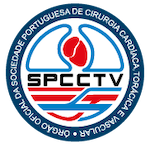Results Of Minimally Invasive Vats Thymectomy In Miastenia Gravis Patients Compared With More Invasive Approaches – 10-Year Experience In A Single Center
DOI:
https://doi.org/10.48729/pjctvs.345Keywords:
Myasthenia gravis, thymectomy, minimally-invasive surgery, open surgery, thymomaAbstract
Introduction: Myasthenia gravis (MG) is an autoimmune, neurologic disease that causes a wide range of symptoms. While the transsternal, transcervical and thoracotomy approaches are accepted as effective, there is still debate regarding the VATS approach.Materials and Methods: We analyzed our center’s surgical experience with thymectomy for myasthenia gravis, comparing the results of patients operated on using VATS and more invasive approaches, over a period of 10 years. A search of the department’s surgical database for myasthenia gravis cases between January 2010 and January 2021, revealed a total of 40 cases. Twenty-four patients were included in the final analysis and were distributed into two groups: the VATS procedure group (group A) and the open procedure group (group B). The latter included sternotomy, thoracotomy, transcervical and hemiclamshell approaches. Only radical thymectomies were included. The established outcomes were clinical improvement defined as asymptomatic remission, reduction, or discontinuation of the medication necessary to achieve optimal symptom control.
Results: The median follow-up time was 27 months (ranging from 4 to 75 months). Videothoracoscopy radical thymectomy was performed on 12 patients. Complete remission with no medication was achieved in 1 case (8.3%), while 2 patients (16.7%) became asymptomatic with reduced medication. An improvement (reduced symptoms or decreased medication) was observed in 8 cases (66.6%). No change in clinical outcome was noted in 1 patient (8.3%). None of the patients reported worsening symptoms. Open thymectomy was performed on 12 patients. Complete remission with no medication was achieved in 1 case (8.3%), while 2 patients (16.7%) became asymptomatic with reduced medication. An improvement was noted in 6 cases (50%). No change in clinical outcome was observed in 3 patients (25%) whereas 2 of them (16.7%) experienced slightly better symptom control but with a significant increase in medication. One patient (8.3%) described the clinical results as without any significant change. None of the patients reported worsening symptoms.
Conclusion: The videotoracoscopic approach in the treatment of myasthenia gravis is non-inferior compared to the open approach and effective in a long-term follow-up, offering all the additional benefits of less invasive surgery.
Downloads
References
Jaretzki A 3rd, Penn AS, Younger DS, Wolff M, Olarte MR, Lovelace RE, Rowland LP. "Maximal" thymectomy for myasthenia gravis. Results. J Thorac Cardiovasc Surg. 1988 May;95(5):747-57. PMID: 3361927.
Mack MJ, Landreneau RJ, Yim AP, Hazelrigg SR, Scruggs GR. Results of video-assisted thymectomy in patients with myasthenia gravis. J Thorac Cardiovasc Surg. 1996 Nov;112(5):1352-9; discussion 1359-60. doi: 10.1016/s0022-5223(96)70151-4. PMID: 8911334.
Gold R, Schneider-Gold C. Current and future standards in treatment of myasthenia gravis. Neurotherapeutics. 2008 Oct;5(4):535-41. doi: 10.1016/j.nurt.2008.08.011. PMID: 19019304; PMCID: PMC4514693.
Infante M, Benato C, Giovannetti R, Bonadiman C, Canneto B, Falezza G, Lonardoni A, Gandini P. VATS thymectomy for early stage thymoma and myasthenia gravis: combined right-sided uniportal and left-sided three-portal approach. J Vis Surg. 2017 Oct 18;3:144. doi: 10.21037/jovs.2017.09.01. PMID: 29302420; PMCID: PMC5676221.
Mineo TC, Pompeo E, Ambrogi V, Sabato AF, Bernardi G, Casciani CU. Adjuvant pneumomediastinum in thoracoscopic thymectomy for myasthenia gravis. Ann Thorac Surg. 1996 Oct;62(4):1210-2. doi: 10.1016/0003-4975(96)00537-1. PMID: 8823125.
Mineo TC, Pompeo E, Lerut TE, Bernardi G, Coosemans W, Nofroni I. Thoracoscopic thymectomy in autoimmune myasthesia: results of left-sided approach. Ann Thorac Surg. 2000 May;69(5):1537-41. doi: 10.1016/s0003-4975(00)01237-6. PMID: 10881838.
Ng CS, Wan IY, Yim AP. Video-assisted thoracic surgery thymectomy: the better approach. Ann Thorac Surg. 2010 Jun;89(6):S2135-41. doi: 10.1016/j.athoracsur.2010.02.112. PMID: 20493997.
Yu L, Zhang XJ, Ma S, Li F, Zhang YF. Thoracoscopic thymectomy for myasthenia gravis with and without thymoma: a single-center experience. Ann Thorac Surg. 2012 Jan;93(1):240-4. doi: 10.1016/j.athoracsur.2011.04.043. Epub 2011 Oct 5. PMID: 21978875.
Savcenko M, Wendt GK, Prince SL, Mack MJ. Video-assisted thymectomy for myasthenia gravis: an update of a single institution experience. Eur J Cardiothorac Surg. 2002 Dec;22(6):978-83. doi: 10.1016/s1010-7940(02)00593-6. PMID: 12467823.
Farrugia ME, Robson MD, Clover L, Anslow P, Newsom-Davis J, Kennett R, Hilton-Jones D, Matthews PM, Vincent A. MRI and clinical studies of facial and bulbar muscle involvement in MuSK antibody-associated myasthenia gravis. Brain. 2006 Jun;129(Pt 6):1481-92. doi: 10.1093/brain/awl095. Epub 2006 May 3. PMID: 16672291.
Leite MI, Ströbel P, Jones M, Micklem K, Moritz R, Gold R, Niks EH, Berrih-Aknin S, Scaravilli F, Canelhas A, Marx A, Newsom-Davis J, Willcox N, Vincent A. Fewer thymic changes in MuSK antibody-positive than in MuSK antibody-negative MG. Ann Neurol. 2005 Mar;57(3):444-8. doi: 10.1002/ana.20386. PMID: 15732104.
Mack MJ, Scruggs GR, Kelly KM, Shennib H, Landreneau RJ. Video-assisted thoracic surgery: has technology found its place? Ann Thorac Surg. 1997 Jul;64(1):211-5. doi: 10.1016/s0003-4975(97)00247-6. PMID: 9236363.
Downloads
Published
How to Cite
Issue
Section
Categories
License
Copyright (c) 2024 Portuguese Journal of Cardiac Thoracic and Vascular Surgery

This work is licensed under a Creative Commons Attribution 4.0 International License.





